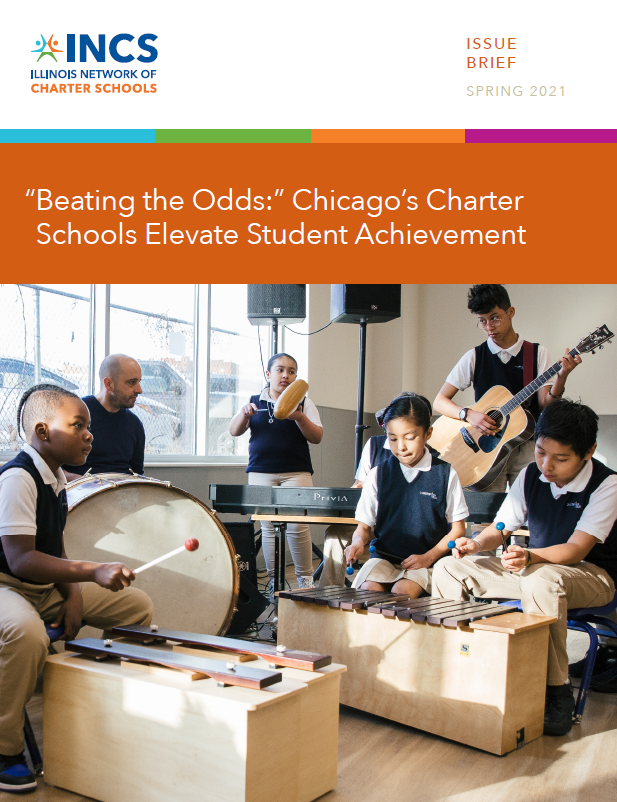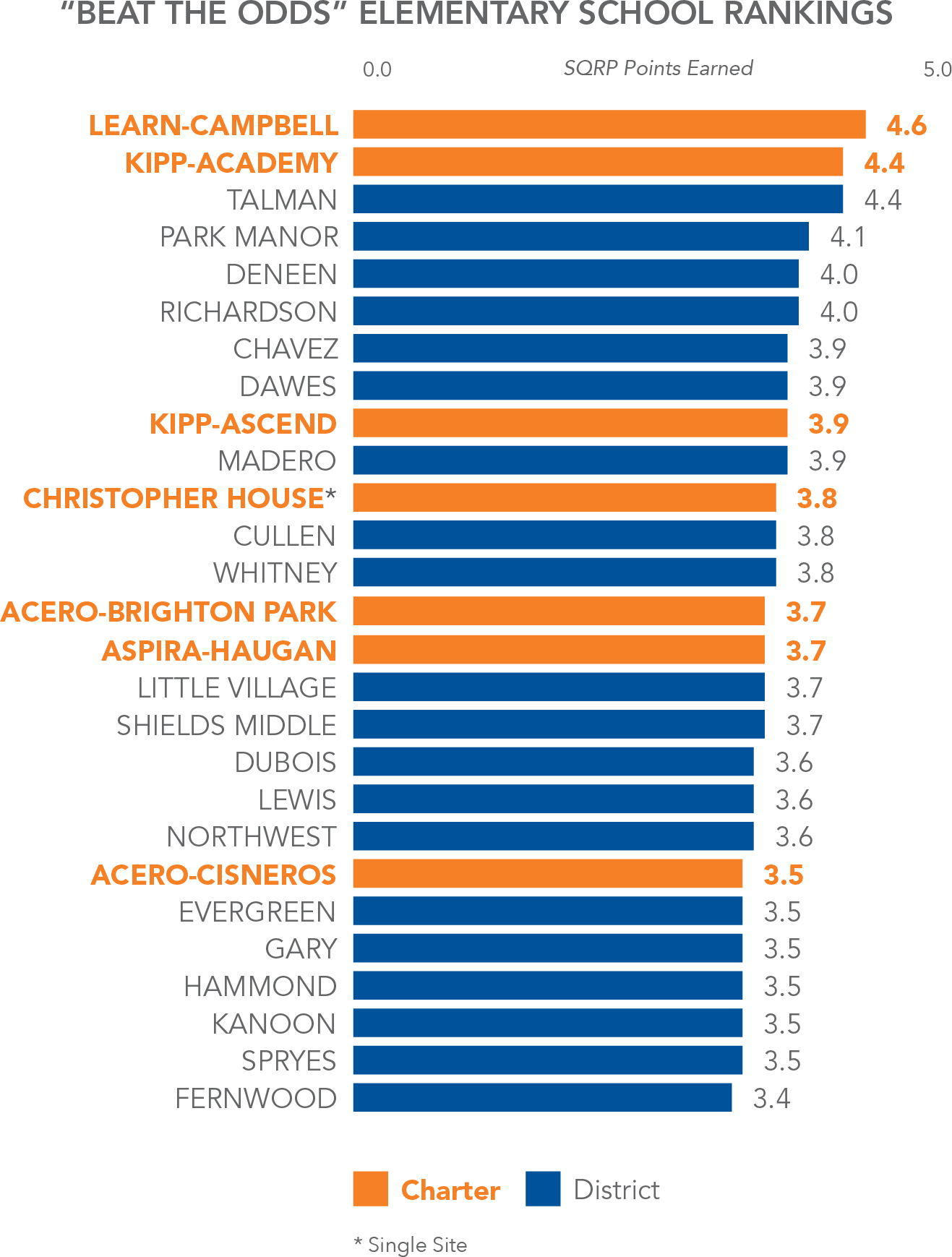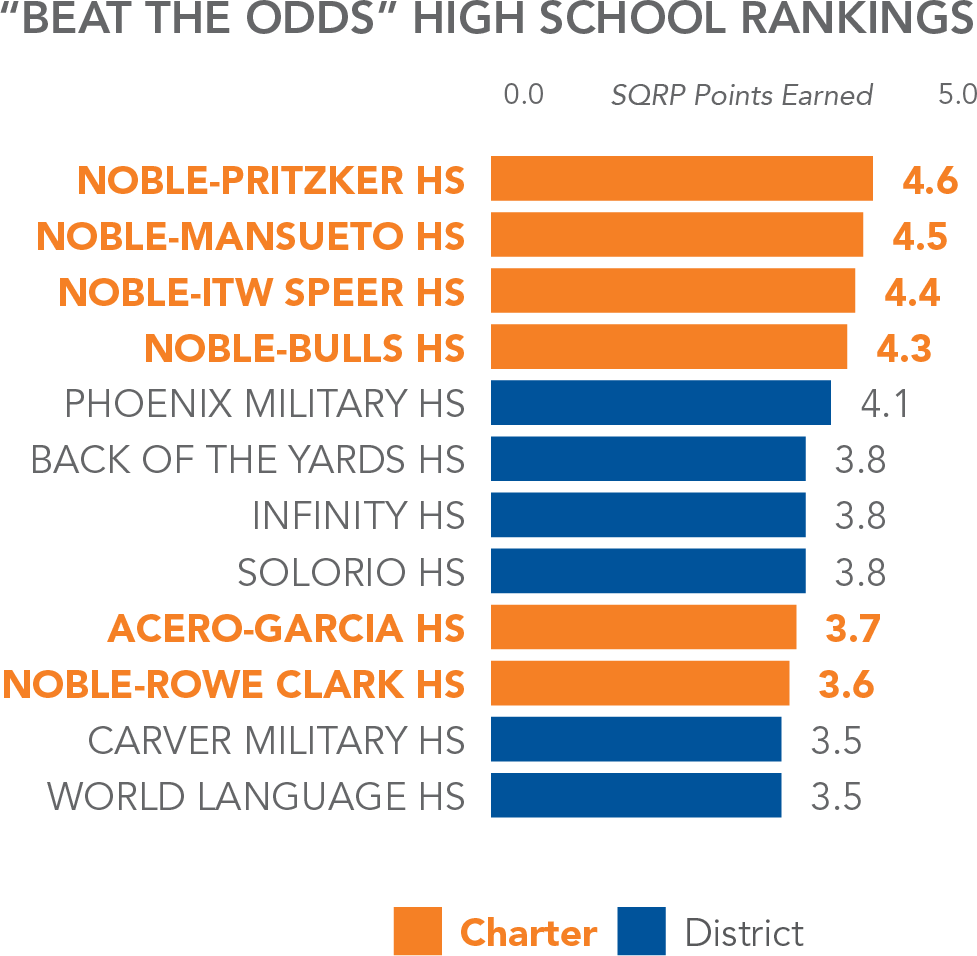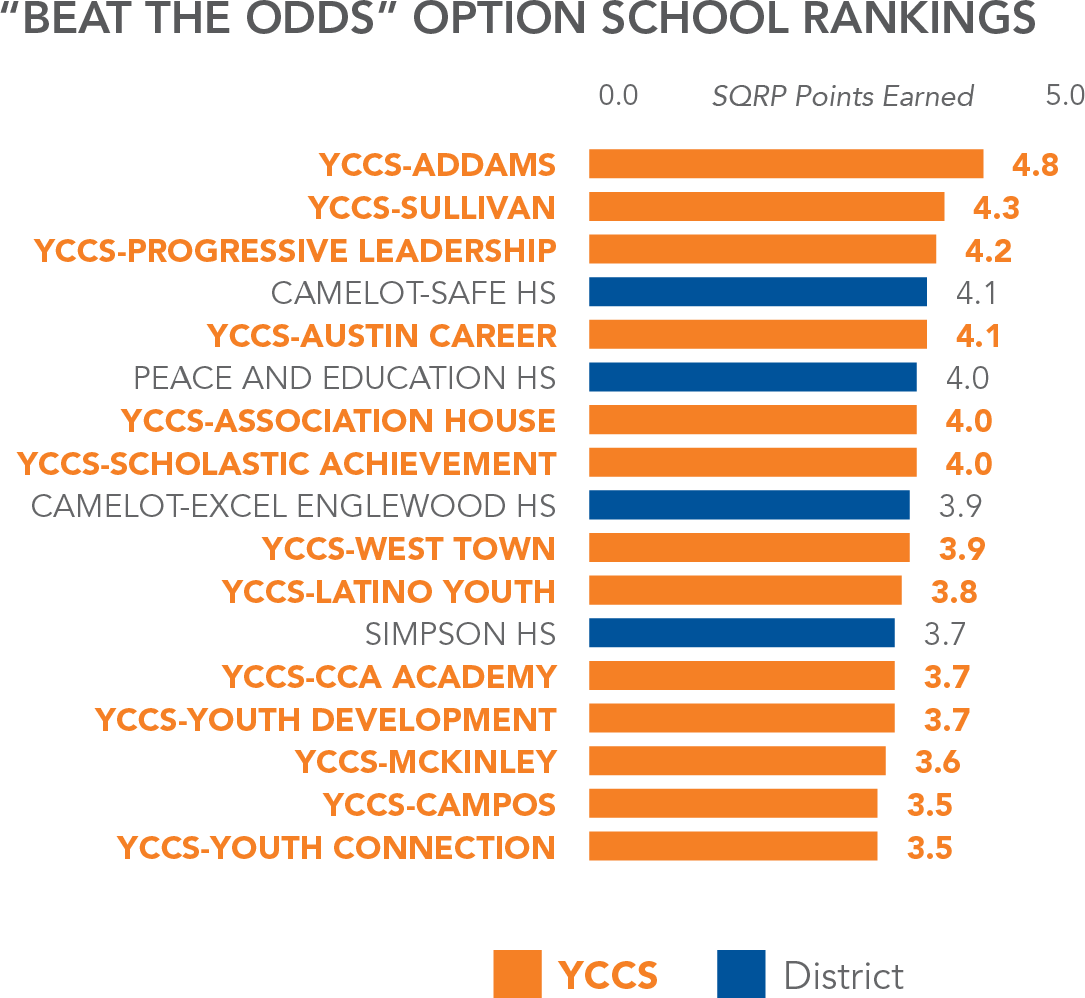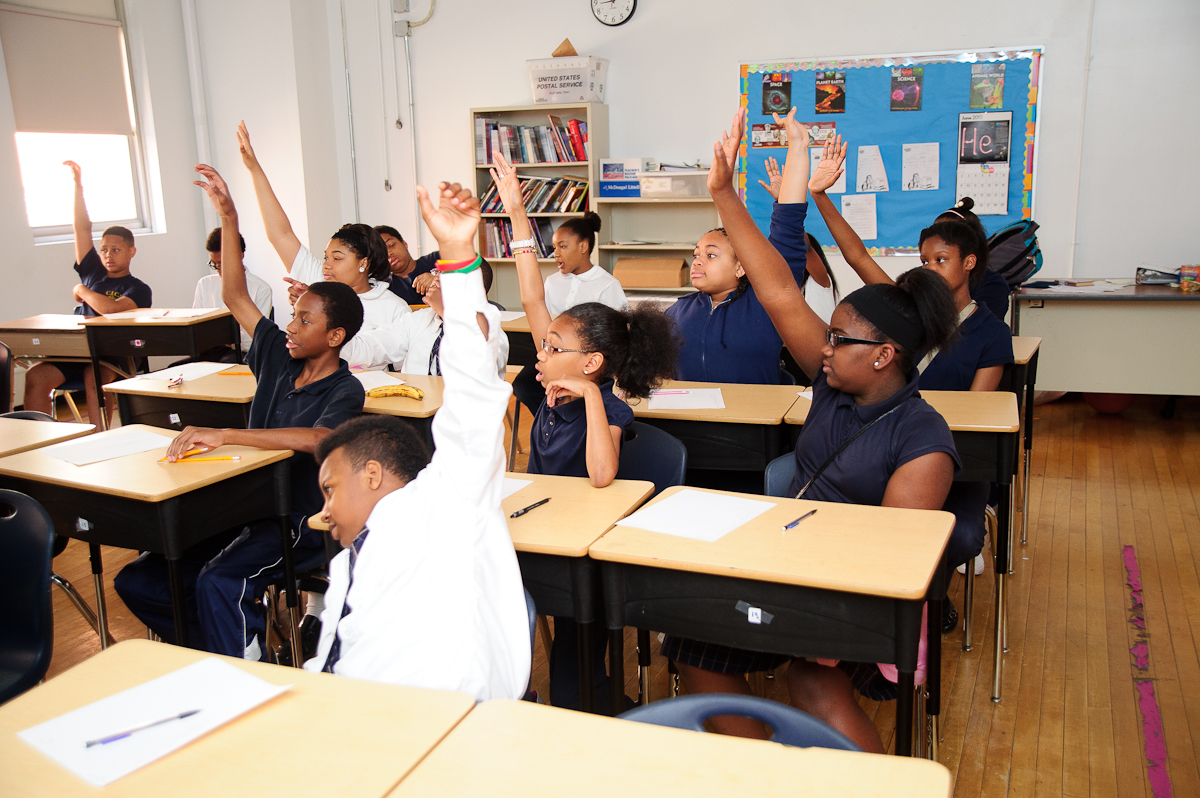
Beat The Odds
Chicago's Charter Schools Elevate Student Achievement
Summary
Numerous academic studies have established a strong correlation between poverty and academic performance.[i] [ii] As a general matter, schools with higher concentrations of low-income students tend to have weaker academic performance than schools with a more affluent student population. But some Chicago public schools have broken this pattern, achieving remarkable academic success while serving an economically disadvantaged student population.[iii] This brief examines the academic performance of every Chicago public school, identifies the schools that have “beaten the odds,” and summarizes the programmatic approaches used by these schools to create such remarkable results. Our research indicates that charter public schools are overrepresented among such schools. Despite serving a community that has historically faced systemic barriers to academic success, Chicago’s charters are nearly four times more likely to “beat the odds” than district peers.
Central to the charter school mission is a commitment to sharing successful practices pioneered in charter schools with other public schools. The research on these highly successful schools identified six distinct priorities that correlate with sustained success: (1) Providing a continuum of care from early childhood to and through high school. (2) Developing a strong adult culture, rooted in a school’s mission and vision. (3) Creating centralized data teams that equip teachers and administrators with robust student-level data. (4) Utilizing flexible staffing models to individualize instruction. (5) Centering social justice in curricula to keep students engaged. (6) Embedding strong attendance as a schoolwide priority.
What is a "Beat the Odds" School...
To better understand what practices and policies are driving student achievement in Chicago, the Illinois Network of Charter Schools decided to investigate high-performing schools that serve a historically higher-needs population of students. We define a “beat the odds” school as one that serves a student population that is at least 90% students of color, at least 90% free- or reduced-price lunch eligible, and earned a Level 1/1+ on CPS’ School Quality Rating Policy (SQRP). Of the 644 CPS schools evaluated in 2019, 159 serve a high-needs population, but only 58 “beat the odds”.
Data Deep-Dive
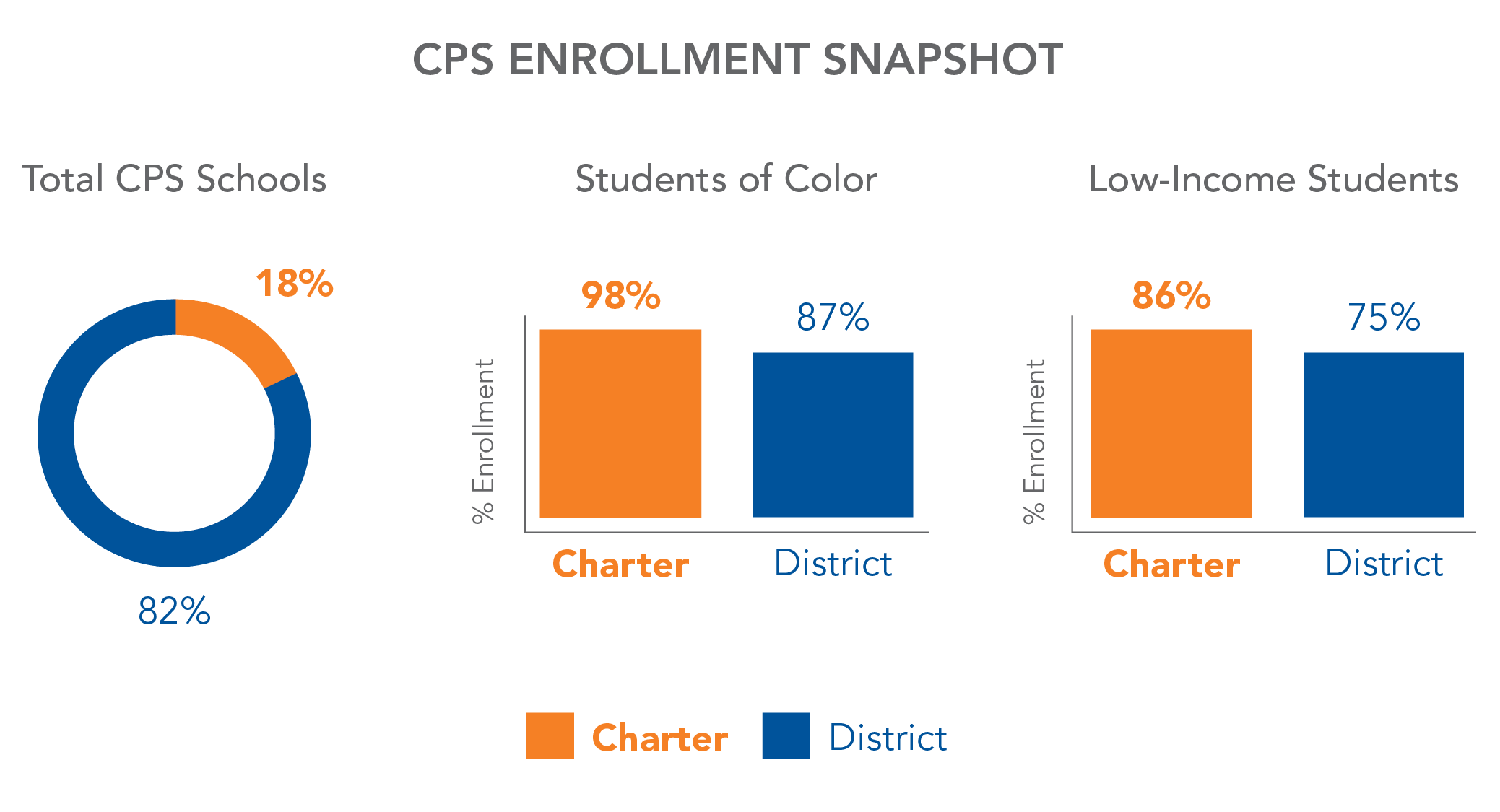
Chicago's 114 CPS charter public schools serve 54,633 students on the South and West Sides–the majority of whom are students of color and free/reduced-price lunch eligible. The charter community is over 9% higher low-income students of color than the district overall.
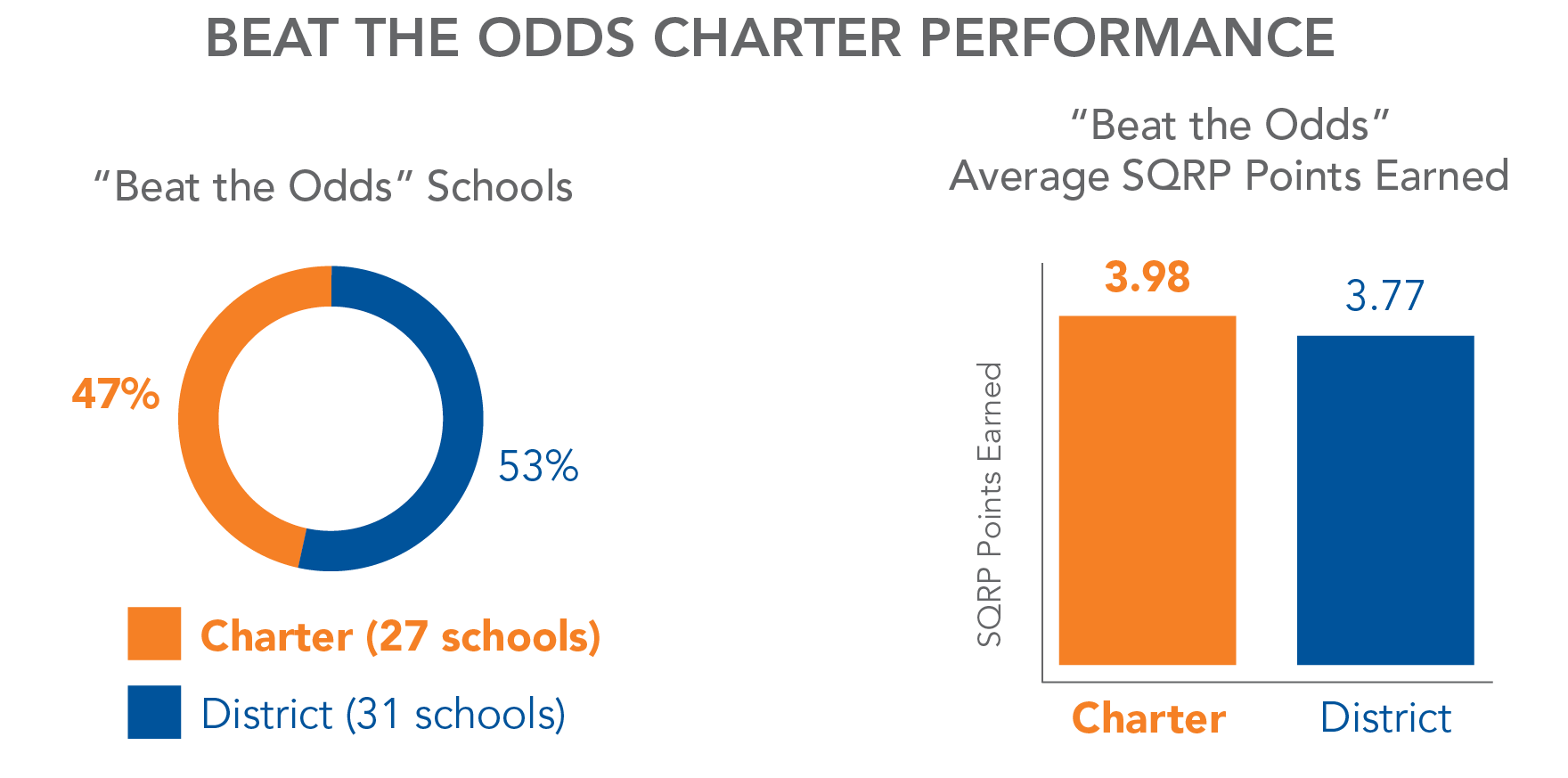
In the city’s cohort of 58 “beat the odds" schools, charter schools are equally represented as district peers despite only making up 18% of total CPS schools. Notably, charters are nearly four times more likely to “beat the odds” than district peers–23.28% of all charter schools “beat the odds”, compared to only 6% of district peers.
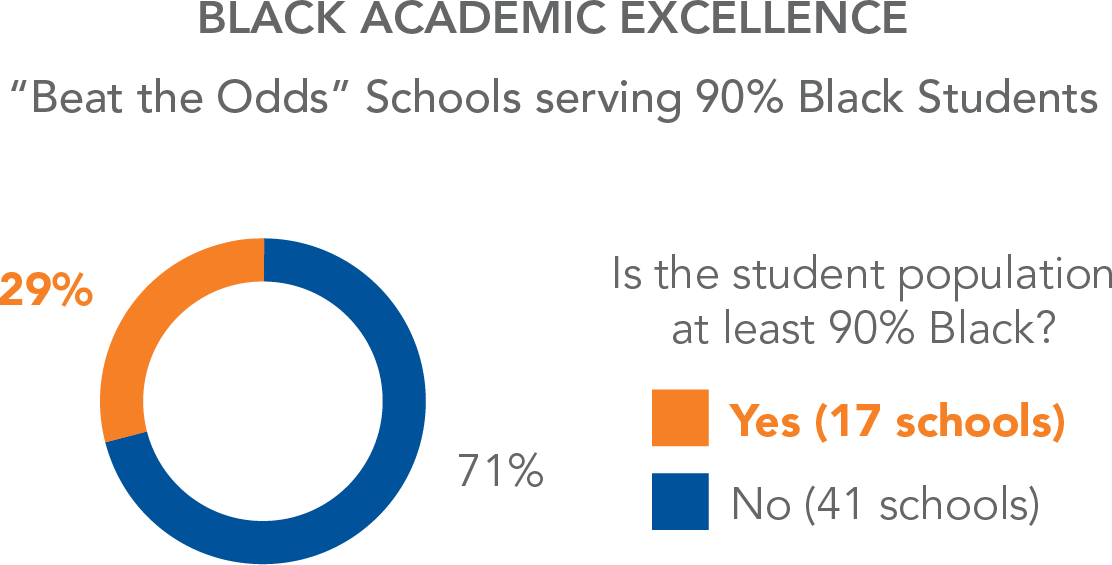
Charter “beat the odds” schools are more than twice as likely than district peers to be majority Black. Importantly, majority Black “beat the odds” charter schools have a higher SQRP point average than district peers–4.0 to 3.8 points, respectively–and are 1.6x more likely to earn a Level 1+ than district schools.
Best Practices
Across the city, high-performing charter public schools continue to drive student achievement, particularly for low-income students of color. To better understand what practices and policies are guiding this advantage, we interviewed six “beat the odds” charter school leaders. From these conversations, school leaders elevated six key practices they believe push the needle on student achievement.
Meet the "Beat the Odds" Schools
-

Continuum of Care
closeLearn more about how Christopher House supports students from 6-weeks through 8th grade.
-

Strong Adult Culture
closeLearn more about how ASPIRA-Haugan fosters a strong adult culture through professional development and pathways to leadership.
-

Centralized Data Teams
closeLearn more about how Noble Network of Charter Schools uses a centralized data team to equip teachers and administrators with robust student level data.
-

Flexible Staffing Models
closeLearn more about how LEARN-Campbell’s flexible staffing model supports differentiated instruction to meet each student’s individual needs.
-

Strong Civic Engagement
closeLearn more about how Youth Connections Charter Schools re-engages students with a robust civic engagement curriculum.
-

Prioritizing Attendance
closeLearn more about how KIPP embeds attendance as a schoolwide priority and makes school a place where students want to be day after day.
